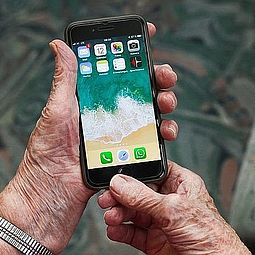Marci’s Medicare Answers
June 19, 2015 at 9:36 a.m.
Dear Marci,
I have been taking Lidocaine patches for years to help my back pain. There has never been a problem getting my Part D plan to cover the patches, and nothing has changed this year in terms of my condition or coverage. Earlier this year, I got a notice from my plan saying that the patches have been denied because of off-label use. What exactly does off-label mean, and can I do anything to get the medication covered?
Jill (Houston, TX)
Dear Jill,
Off-label drug use means that a prescription drug is prescribed for a reason other than the use that is approved by the U.S. Food and Drug Administration (FDA). Medicare does not cover drugs that are prescribed for reasons other than the FDA-approved use. You can appeal this decision, but these appeal requests are not always granted.
In general, there can be several reasons for Part D drug denials. For example, a drug can be denied based on quantity limits (amount you need exceeds the authorized limit), step therapy (you must try a less expensive drug before the more expensive one is covered), or not on the formulary (a plan’s list of covered drugs).
Off-label drug denials are more complex. You may think that because your doctor writes you a prescription to treat a particular condition, you must be using the drug for an approved purpose. However, this is not necessarily the case. In some cases, your doctor may prescribe a drug for off-label drug use, meaning that the reason you use the drug is not an approved use by the Food and Drug Administration (FDA). Medicare Part D plans only cover drugs that are prescribed for medically indicated use, meaning that it is FDA approved or is listed in one of three Medicare-approved drug compendia. A drug compendia is a medical encyclopedia of approved drug uses.
Off-label means that the reason that you are using the drug for has not been approved by the FDA and is not mentioned in a Medicare drug compendia. So, although off-label drugs are still legal for a doctor to prescribe and can be helpful in treating your medical condition, Medicare does not cover them.
In terms of your denial, Jill, the Lidocaine patches were denied due to off-label use because Lidocaine patches are only approved by the FDA to treat post-herpetic neuralgia, a complication of shingles. This means that the only way Medicare covers Lidocaine patches is if you have post-herpetic neuralgia. It does not make a difference what Part D plan you have; Lidocaine patches are not covered by Medicare unless you have this diagnosis. Although the Lidocaine patches may significantly improve your back pain, Medicare Part D does not cover it since this is not an FDA approved use.
You can request an exception for your plan to cover the patches, but these requests are rarely granted for off-label drugs. Before starting the appeal process, have a conversation with your doctor regarding the denial. You may want to explore other Medicare-covered prescription drugs.
If you appeal the denial, your first step is requesting an exception to ask your plan formally to cover the Lidocaine patches. Your doctor should write a letter of support, indicating why Lidocaine patches are medically necessary for you, and why other drugs on the formulary would be less effective or even harmful for you. If the plan denies the exception request, you can move on to the appeals process.
-Marci
Dear Marci,
My father has Medicare and is in the hospital after a fall. His doctor and nurses say that he is ready to be discharged from the hospital, but he feels that he is not yet well enough to return home. He has some lingering health issues and wants to stay in the hospital for a few more days. Can he appeal a hospital discharge?
- Fred (St. Louis, MO)
Dear Fred,
Yes, people with Medicare can appeal a hospital discharge if they are not ready to leave. The appeal process for a hospital discharge is different than other Medicare appeals, because hospital discharge appeals follow a fast timeline. Read below for information about appealing a hospital discharge.
To appeal, first consult the Important Message from Medicare notice, which the hospital should provide you at least once during your inpatient hospital stay. Among other things, the notice tells you how to request a review of your case by the Beneficiary and Family-Centered Care Quality Improvement Organization, often called the Quality Improvement Organization (QIO). The QIO is an independent body that reviews hospital discharge appeals for Medicare beneficiaries.
Know that while the QIO is reviewing the appeal, the hospital must also provide you a more detailed notice that explains why it thinks you are ready to leave. This is called a Detailed Notice of Discharge. In the meantime, the QIO will review your medical records and contact you for your opinion on the discharge.
The QIO should make its decision and call you within 24 hours of receiving all the information it needs. If the appeal to the QIO is successful, your care will continue to be covered.
If your appeal to the QIO is unsuccessful, you will not be held responsible for the cost of the 24-hour period while you waited for the QIO to make a decision. If you remain in the hospital after that period, you may be responsible for the cost of your care if you do not win at a higher level of appeal.
You can choose to move to higher levels of appeal. To read about the higher levels of Medicare appeals for ending care, click here. Be sure to follow rules and deadlines for any higher levels of appeal.
Keep in mind that there are also options for continuing your father’s care after he is discharged from the hospital. He may benefit from home health services while at home or from care at a skilled nursing facility (SNF).
-Marci





